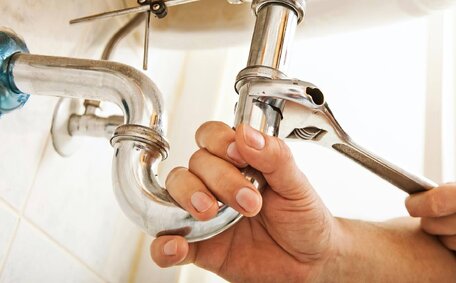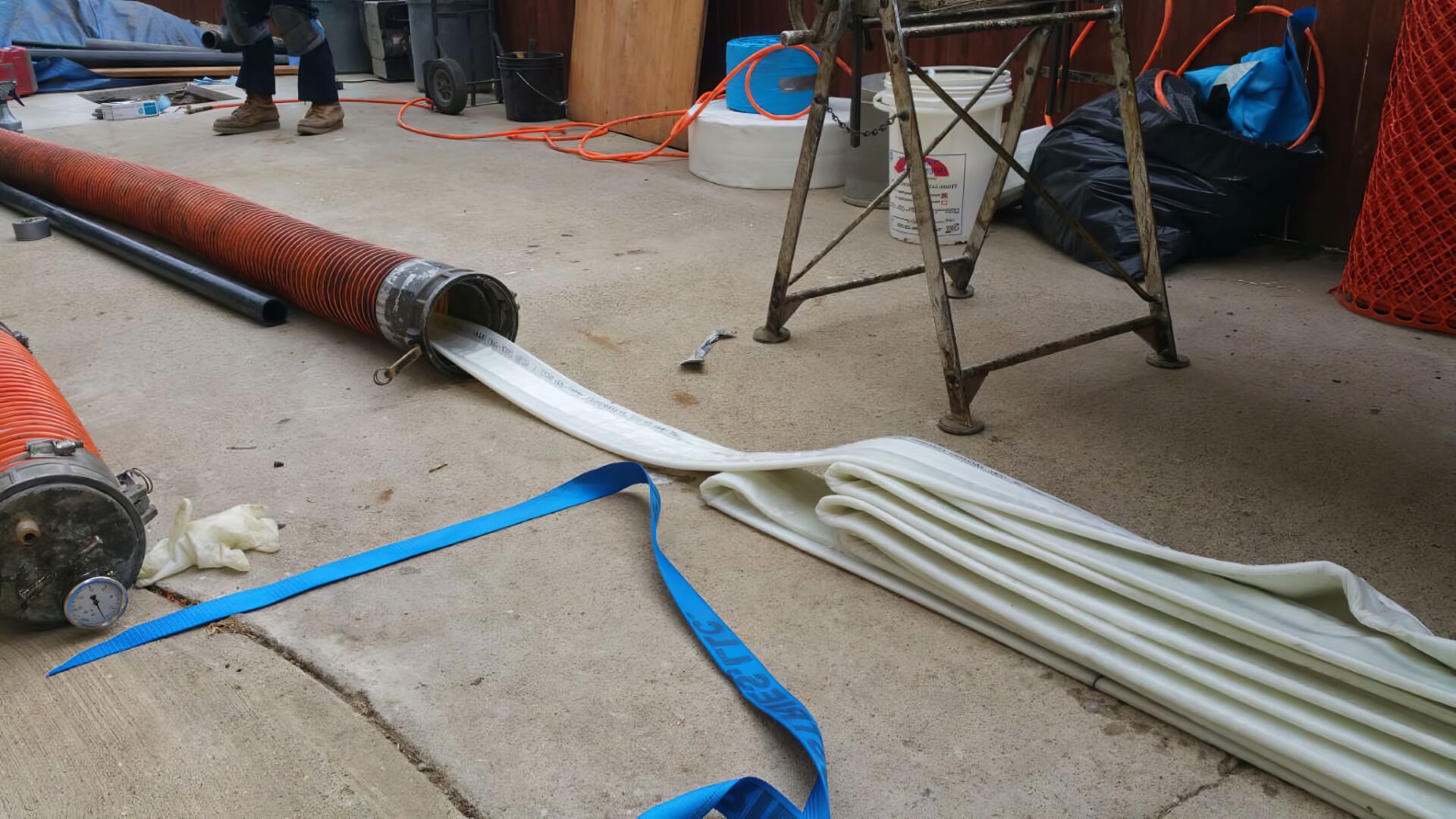Introduction to Gas Valves and How They Work in Furnaces
Your furnace gas valve plays a critical role in the operation and safety of systems responsible for hot water and heating.
Located along the gas supply line of systems like your gas boiler, the components regulate the flow of gas, preventing issues your heating system could suffer from, ensuring an HVAC company endorsed heating mechanism. When your thermostat signals for warmth, the gas valve activates; when the gas valve opens, it permits a blend of gas and air to ignite, bestowing soothing warm air throughout your abode.
Older units such as your boiler, when considering how to determine heating and air conditioning issues, used a standing pilot light to ignite the burners, enabling a steady flow gas to the pilot assembly. The main gas valve, in conjunction with the flame sensor, would permit a small, constant gas flow, leading one to ponder, 'Do I need to check this component regularly?' in the context of the pilot assembly in your heating system. Modern high-efficiency furnaces now use an electronic printed circuit board for ignition systems instead of a standing pilot.
These advanced controls, along with the inducer motor and the safety circuit pressure switch, signal the valve when to open and close gas flow during each heating cycle for improved safety and efficiency.
Because Furnaces gas valve controls the influx of gas into the burners for combustion; any instances where the gas valve isn’t functioning properly can compromise safe furnace operation and warrant a call to a professional for immediate attention. Understanding how to know furnace gas valve issues can inform your household whether the valve your furnace has remains safe, aiding in early problem identification and determining when professional HVAC inspection or service is necessary.
Common Signs Your Furnace’s Gas Valve is Failing
There are several key signs that indicate issues with the gas valve your furnace has:
Furnace Won’t Ignite
Should your furnace gas flow fail to ignite when you endeavour to activate the heat, the cause might be the gas valve that can get stuck in the closed position. Modern furnaces require the gas valve open and allow flow for the burners to successfully ignite each heating cycle.
Loud Clicking Noise
You should hear a distinct clicking noise when the gas valve opens and closes. However, repeated clicks without ignition or an inability to stay lit could signify a disruption in the heating air process, a problem with bad gas valve your furnace harbours or the electronic control signals, akin to issues found with an air conditioner.
Rotten Egg Smell
if you ever detect a sulphur-like rotten egg odour, this could potentially indicate something’s wrong with your gas system and cause a gas leak. It likely means the valve is failing to fully close off gas flow into the inactive furnace. Turn off the gas supply line immediately and contact emergency HVAC repair.
Other potential symptoms such as irregular burner flames, furnace overheating, and high levels of carbon monoxide detected on monitors in your home, all suggest it’s best to call HVAC professionals. It’s best to call HVAC experts if any valve problems are suspected.
Furnace Does Not Turn On
One of the most apparent signs that can cause furnace issues is when the gas valve is faulty, leading your furnace to fail to turn on.
The gas valve in your furnace plays a key role in allowing the flow of gas into the burners for ignition. So if it’s stuck closed or not opening properly, this will prevent your furnace from lighting at all.
If you turn up your thermostat but your furnace isn’t working properly or doesn’t commence a heating cycle, there are a few basic troubleshooting furnace gas procedures to try first:
- Make sure your furnace control board is switched on and supplying power
- Check that your thermostat is working correctly and batteries are fresh
- Inspect if your air filter is dirty and restricting airflow
- Reset your boiler and wait 10 minutes to see if it starts up
However, if your furnace still fails to start after trying those steps, it likely indicates an issue with the gas valve itself and it’s time to call a professional. To identify gas valve one more conclusively, watch to see if you hear the initial electronic sparking sound of the ignitor while the furnace is trying unsuccessfully to light.
A bad gas valve in your furnace that may lead to malfunctions, an issue that can require professional diagnosis and repair as soon as possible: It’s crucial to know furnace gas valve is fundamental to safe operation and should never be DIY-repaired by homeowners.
Call HVAC emergency technicians if your furnaces gas heat won’t turn on - as well as for any gas smells, issues that could cause a gas leak, or other major furnace issues you notice.
Pilot Light Repeatedly Goes Out
If you have an older furnace with a pilot light, noticing it goes out repeatedly is often linked to issues with the thermocouple or gas valve.
The thermocouple, a crucial valve your unit relies on, which can also malfunction, is a safety device that senses when the pilot light is on. If this component fails, the furnace thinks the pilot is off or not lighting, causing a shutdown. The gas valve faulty may not be providing steady gas flow to keep the pilot going.
Let a boiler repair company’s professional HVAC technician provide comprehensive boiler service to evaluate these parts of your system and understand if you need to replace gas components to resolve furnace issues. Cleaning around a dirty pilot assembly or replacing faulty thermocouples/valves can resolve repeat pilot outages. DIY repairs on furnaces gas mechanisms are dangerous - it’s critical to call an expert for proper diagnosis and corrections to furnace pilot problems.
Strong Gas Smell from Furnace
If you detect a strong rotten egg or sulphur-like odour coming from your gas furnace, this signals an extremely dangerous situation that requires immediate action.
The gas smell likely indicates a serious leak from a faulty component like the gas valve, an event when home services are urgently needed. Gas leaks, issues your family cannot ignore, can cause fire or explosion hazards, and pose exposure risks of dangerous carbon monoxide accumulations.
If you smell gas near your furnace under any circumstances:
- Evacuate your house immediately and call 000 to reach emergency services
- Do NOT turn any electrical devices or lights on or off, as sparks could ignite leaking gas
- After exiting your home, call Petersham Plumbing straight away on 1300 349 338 so our gas leak repair team can assist emergency crews
Never ignore the smell of gas originating from a furnace. Our technicians have advanced diagnostic equipment to accurately pinpoint the source of leaks and repair faulty gas system components. We’ll work to resolve the problem and restore safe operation so you feel comfortable turning your furnace back on.
Safety Hazards of a Faulty Gas Valve
A faulty furnace gas valve poses serious safety risks that require urgent attention. Key dangers include:
Gas Leaks
If the valve fails to fully close off gas flow into an inactive furnace, this issue can potentially damage your home with dangerous leaks that put it at risk of fire or explosion. Leaking gas, a scenario recognised as one most popular household hazards due to its dangerous nature, subsequently results in carbon monoxide buildup.
Carbon Monoxide Poisoning
Carbon monoxide is an odourless, colourless gas that can be fatal at high concentrations, leaving it critical to know your furnace gas mechanics in preventing it. A malfunctioning valve allowing excess gas flow and how know your furnace could be at risk of CO production.
Fire Hazards
Gas leaks from your furnace’s faulty gas valve your safety, raising the chances of accidental ignition and fire. If leaking gas accumulates and combustible fumes reach an ignition source, an explosion could occur.
According to Energy Safe Victoria, around 28% of reported gas leaks originate from water heaters or furnaces. This highlights the importance of addressing any potential valve issues immediately. Our licenced technicians have specialised training and equipment for diagnosing and repairing furnace gas valve bad to resolve these serious risks.
When to Call a Professional
It’s important to call a professional plumber specialising in boiler repair as soon as you notice any potential signs of a failing gas valve in your furnaces. Gas valves play a critical safety role, and issues can quickly escalate if left unchecked.
Don’t hesitate to pick up the phone and call Petersham Plumbing on 1300 349 338 if you experience any of the following:
- Gas smell coming from your furnace
- Furnace not igniting or turning on
- Pilot light repeatedly goes out
- Loud clicking noise from the furnace
- Flames not burning properly or making odd sounds
Our gas safe registered technicians have extensive training to accurately assess gas valve problems. We’ll troubleshoot the issue and can perform necessary repairs or full replacements if the valve is faulty. Calling us promptly when symptoms arise can help prevent more serious - and potentially dangerous - breakdowns.
Entrust your home’s plumbing and gas systems to our capable team. We’re available 24/7 to address furnace valve concerns and restore safe, reliable operation of heating systems so you can stay warm all winter long.
Preventing Gas Valve Failure
There are a few key steps homeowners can take to help prevent gas valve failures:
Regular Maintenance
Having an HVAC professional inspect and check your furnace’s conditions before each heating season can catch early signs of wear on components like your furnace’s gas valve. Technicians can lubricate valves, adjust gas pressure into the furnace, and ensure proper functioning of your system.
Protect Valves from Moisture
Excess moisture exposure can lead to corrosion that disturbs the flow of gas into the burners, causing gas valve malfunctions over time. Keeping furnaces properly ventilated and away from water risks helps safeguard valves.
Replace Old Valves
Like any mechanical part, including the heat exchanger, gas valves eventually wear out from use and environmental factors. Most industry experts recommend replacing your gas valve after about 10-15 years as a precaution, even if no issues are apparent.
Following furnace best practises and acting promptly when problems arise reduces the chances of dangerous and costly gas valve failures down the track.
Replacing Old Valves
To keep your furnace running safely and reliably, it might be necessary to replace your gas valve. The valve in your furnace does wear out over time from use and environmental factors. Industry experts often recommend proactively replacing valves after around 10-15 years.
Choosing the Right Replacement Valve
When your HVAC technician integrates a new gas valve into your furnace, it’s important to select the properly rated valve for your furnace’s BTU capacity and fuel type. Key specifications include:
- Voltage
- Power consumption
- Fuel compatability (natural gas or propane)
- BTU capacity range
- Certified safety ratings
Our technicians will identify and fix your gas valve with an optimal replacement suited for your specific furnace make and model.
Cost of Gas Valve Replacement
Expect to pay anywhere from $250 - $750+ for full gas valve replacement, accounting for the possibility that the current valve locks out the gas flow completely. Prices most likely vary based on when the gas valve type, labour time involved, and any other connected repairs needed. Diagnostic fees also apply if troubleshooting is required to confirm the valve is faulty.
While the parts themselves range from $100-300+, hiring a licenced pro to install a gas valve is strongly advised. Gas systems involve dangerous leaks/fire risks if valves are serviced incorrectly.
For qualified gas valve replacements, contact the experts at Petersham Plumbing on 1300 349 338 or jobs@petershamplumbingservices.com.au.
Conclusion
A failing gas valve can seriously compromise the safe operation of your home’s furnace, indicating your furnace faulty gas issues that require prompt resolution. Addressing any furnace faulty issues promptly, especially potential gas leaks, is critical for preventing fire, explosion, or carbon monoxide poisoning dangers.
Understanding the answer to 'do I know the common symptoms’ like the inability to ignite, pilot light outages, odd noises, or gas smells can help catch problems early before they escalate.
While some basic troubleshooting steps are appropriate, it’s vital to involve professional HVAC services whenever you suspect issues that can affect your furnace’s gas valve functioning. Our licenced technicians at Petersham Plumbing have extensive training to accurately diagnose issues and perform needed repairs. We also specialise in installations if replacements are required.
Don’t hesitate to call us at 1300 349 338 or email jobs@petershamplumbingservices.com.au anytime you notice potential signs of a faulty gas valve. Prioritising safety and acting quickly can help restore proper operation so you can rely on efficient, reliable heating all season long.






